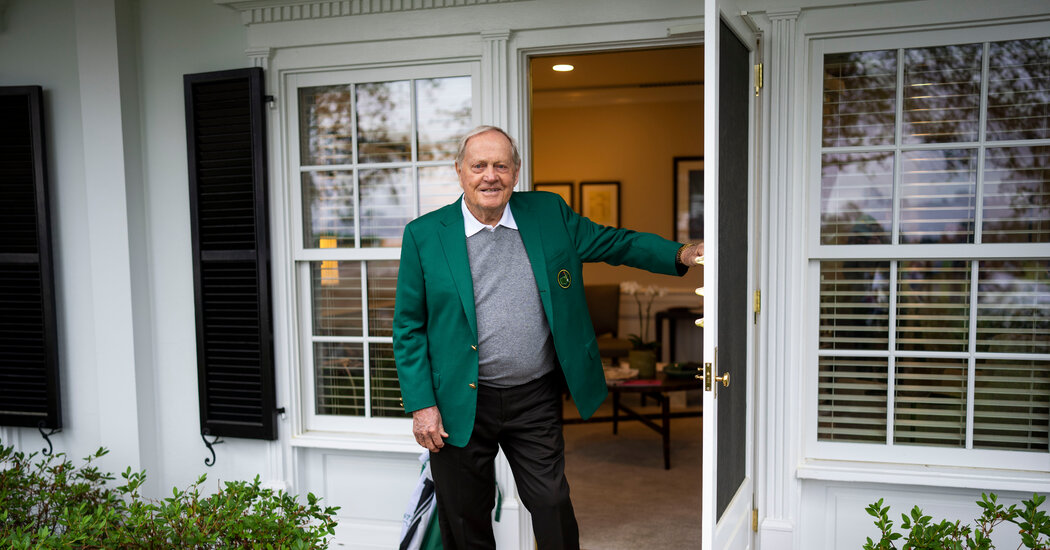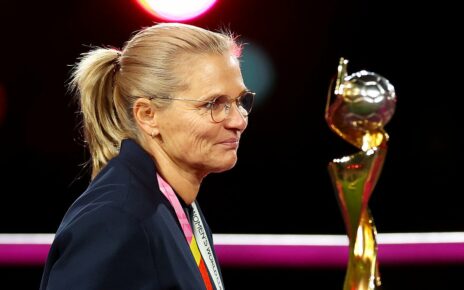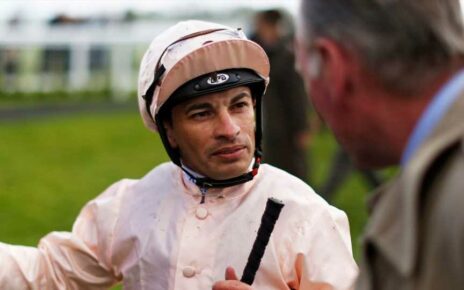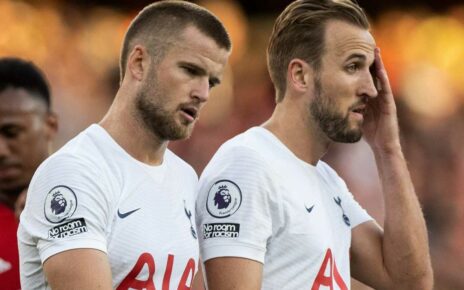In 1950, when the P.G.A. Championship came to Scioto Golf Club, a 10-year-old boy wandered the grounds near Columbus, Ohio, searching for autographs. He had just started playing golf that year, and the likes of Sam Snead and Lloyd Mangrum were populating his home course.
The boy was Jack Nicklaus.
The spectacle, he recalled this spring, was among the earliest inspirations for a golfing career whose brilliance became abundantly clear 60 years ago. Nicklaus had won his first major title by then, but 1963 brought the 23-year-old player his first Masters Tournament victory and his inaugural triumph at a P.G.A. Championship.
Nicklaus’s fifth and final P.G.A. Championship win came in 1980 at Oak Hill Country Club in Pittsford, N.Y., where the tournament will be played beginning on Thursday.
Over two interviews last month — one at Augusta National Golf Club and another by telephone — Nicklaus considered Rory McIlroy and Jon Rahm, the new LIV Golf league backed by Saudi Arabia, the future of the golf ball and whether anyone might win at Oak Hill by seven strokes, as he did in 1980.
This interview has been edited for length and clarity.
In 2013, when the P.G.A. Championship was last at Oak Hill, there were 21 players below par. There had only been four across the previous two P.G.A. Championships there, in 1980 and 2003. Had Oak Hill gotten too easy?
I won there in 1980, and I think 280 was par. Oak Hill played pretty darn tough. I didn’t really play all that well that week, hit it all over the place, but every time I got it on the green, I holed it. I remember in the last round, I was in the lead and I was nervous because I wasn’t hitting it that great. I hit in the rough and got it on the green, so I shot 35 feet on the first hole. I said, “Well, here we go,’ and started feeling a little more comfortable.

If a designer is looking to challenge today’s players, how much of a challenge can he create by, as Andrew Green has now done at Oak Hill, rolling back the clock and looking back at the original Donald Ross designs?
You can’t. The only thing you’re going to roll back and add to is distance. Oak Hill, I thought was very different: Most Ross golf courses are relatively small greens, and Oak Hill had very large greens. And then, of course, Fazio came in there and did three or four holes in the middle part of the front nine, as I recall, and they didn’t really look a lot like the other holes on the golf course that I saw in ’68. I like Oak Hill; I think it’s a great golf course. But you can tweak something right out of its tradition.
What should happen to the golf ball?
They say the golf ball has “only” increased 0.82 yards a year, which means in the last 10 years, it’s increased 8.2 yards. You’ve got to put a line in the sand somewhere.
And I don’t think that the U.S. Golf Association and R&A have really rolled the ball back much. What they’ve done is say, “We really don’t want it to go any farther than this.” And that’s really only for the elite players. They left the golf ball alone for the average golfer.
It was a really good move to try to put a line in the sand. I mean, not everybody’s got the ability to go buy the golf course next door, like you do at Augusta. You can’t just keep buying land and adding. We used to have in this country probably a couple of thousand golf courses that could be tournament golf courses. Today, we maybe have 100.
A lot of the players say: “Why would you want to change something that’s really good?”
Well, it’s not because it’s really good; it’s because it’s really good for a small percentage of people, and it needs to be better for a larger percentage of people. It’s a game we hope that can be enjoyed by a lot of people.
Part of that enjoyment comes from the pros being able to play with the amateurs. I used to be able to play an exhibition with a club champion. We’d play the back tees, and I’d maybe hit it 15, 20 yards by him, but we had a game because he knew the golf course.
Today, could you imagine Tiger Woods or Jon Rahm going to play an exhibition with a club champion? They’d hit it 100 yards by him. I mean, that’s not a game.
There’s also debate about the world ranking system. Who is the best player in the world right now?
It’s very debatable. I think Rory McIlroy is the one who I would have said probably is the best player in the world, but then Rory doesn’t even make the cut at the first major. How does the best player in the world miss the cut at the first major?
Jon Rahm is pretty darn good. And you’ve got Brooks Koepka, who has come back and he’s leading the tournament.
I guess that’s the beauty of golf. It’s not like tennis, where you knew you were going to get Nadal and Djokovic.
Gary Player doesn’t think golf has an era-defining figure at this moment — that there’s not a Tiger, there’s not someone like you.
No, there’s not.
Is there a player who could become that person?
Rahm would be the closest.
Is it better for golf to have one megawatt superstar everyone knows, or is it better to have a bunch of guys with big followings but who don’t command all of the attention?
I think most sports are probably more healthy with more stars — more diversity in what’s going on and more people to look at. When Arnold Palmer and Gary and I played, if one of the three of us didn’t play in a tournament, they felt the tournament was a failure.
But if you’ve got 10 or 12 guys who are really at the top, you don’t have to get more than two or three of them to create a tournament and you’ve got a really good field. If there’s only one guy, it’s all on his back, and I don’t think that’s real good.
Since you mentioned Rory, what’s holding him back?
I’m a big Rory fan, and he’s a good friend of mine, and I talk a lot with him. But I really don’t know.
His usual is to go par, par, birdie, birdie, birdie, eight, and that’s what he’s not been doing. He and I have talked about it. I said, “Rory, it’s got to be 100 percent concentration, and you can’t let yourself get into a position where you can make a quad or whatever.” I think he understands that very well. He’s certainly very smart.
Justin Thomas just missed the cut, and I root for Justin a lot, too. I spend a lot of time with him. Great kid. He’s struggling, and he’s missing just a little something right now.
And Rahm looks like he’s just loaded with confidence. He sort of beams with it.
When you size up Rahm, what kind of scouting report do you come away with?
I’ve known him since he received a college award, the Nicklaus Award. I liked him then, and I followed his play from when he first started. I’ve always thought that he plays very smart golf. He played much the way I did: left to right, and played much for the power game. I like what he does. I like the way he goes about it. He’s got a little bit of fire in him. He can get mad, which is OK because it usually helps him. Some guys get mad and it destroys them, but it seems to help him.
How do you see Rahm’s approach to the game working at Oak Hill?
Oak Hill is a golf course that fits right down his alley. I was a left to right player, hit the ball long. When I won in 1980, I was the only person to break par. He’s a good putter. I putted very well at Oak Hill. I didn’t particularly play that great, but my putter was a deciding factor. Because my game was a strong game, I stayed in the tournament, and my putter won it for me, and I would think he’d fall into much the same category: If he was playing well or semi-well, he’ll be there. If he doesn’t putt well, he won’t win.
But he’s a pretty darn good putter.
Some of your colleagues have said they think there is a universe in which LIV, the new Saudi-backed league, could be good for golf. Do you buy that?
Competition is good anywhere. My own view is that I was a part of the start of the PGA Tour. [LIV Golf officials] talked to me about wanting me to do it, and I just told them, “I can’t do it guys. I started my legacy on the PGA Tour, and I have to stay there.”
I don’t have a big problem with it. I think there’s a big place for a lot of those guys who are near the end of their career. I think it’s all right from that standpoint.
But for me, it was not. And for any of the young guys who really love playing the game of golf and love competition, I don’t think that 48 players and three rounds of golf and shotgun starts are what you really make a living of. They’ll set their families up for a long time, and I have no problem with any of the guys who have left. But it was not my cup of tea. And is there a universe for both of them? Probably so. I don’t know.
You host the Memorial Tournament in June. What do you make of this no-cut plan that is going to take effect sometimes on the PGA Tour next year?
I’m not fond of it. Some of it is coming from trying to not make the tournaments that aren’t elevated too secondary. If you’ve got 120 guys playing in a cut and they’re suddenly getting into the elevated tournaments, what kind of field are you going to have in the other tournaments? And if you have 70 players playing in one, the 71st player is a pretty darn good player on the PGA Tour.
I think what they’re trying — and what it will do — is to get some guys you have not heard a lot of, and they’re going to be your stars who come along. They’re trying to build more names within the PGA Tour, and we’ll have to see it and see how it works out.
At the Memorial Tournament, I’m not fond of a 70-player field for a couple of reasons. One is that we’ve got a lot of people who come out and see golf, and I want to see them golf all day, particularly on Thursday and Friday.
If Oak Hill doesn’t play tougher this time around, should it stay in the mix for the majors?
Oak Hill will play plenty tough. Oak Hill is not going to bend; it’s too good of a golf course to yield. I would imagine the P.G.A. Championship at Oak Hill in May will have a pretty tough crop of rough. Now, the tour, on a weekly basis, has been cutting the rough down shorter, and driving distance has been emphasized and accuracy has not.
I don’t think golf should be played that way, personally. The Memorial Tournament rough will not be short.
I think that the game of golf is a combination of power, accuracy, intelligence and skill in how you play your shots. You try to make the golf course so that it doesn’t favor a 320-yard hitter, and you don’t want it to favor a 270-yard hitter, either. You want to give some diversity in there — some holes will favor some, and others will favor another — and their skill will allow that to happen.
I feel like the fellow who is playing the best golf in the full round is the guy who should win. The tour has been more on the entertainment factor and the guy shooting low scores. Well, during most of my career, I avoided the courses that everybody shot low scores on. I felt like they didn’t really bring my talent out, I suppose. When I got a good, tough golf course, that’s where the better players shined, and Oak Hill will shine.
What are the chances anyone could win, as you did, by seven strokes?
If you get some rough and you get a bit of a dry period — you’re going to have probably some wind and some odd weather — then your scores could be up. But one guy may catch lightning in a bottle, a little bit like I did, and win by several. You just don’t know.
Source: Read Full Article



